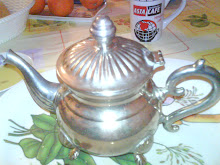ARTICLES
The indefinite article “a”, “an” is used:
a- When the noun is mentioned for the first time.
( He suffered an injury which made him partially deaf.)
b- with nouns, including professions, after the verbs “be” and “become” when the noun has indefinite reference (I’dliketobea pharmacist) (TV is an important invention)
c- In emphatic expressions after “what” and “such”
(What an important invention!) (He was such a hard-working person)
d- In expressions of ratio (price, speed, frequency, etc.) (5Dhs a kilo; 90km an hour; twice a day)
e- With certain numbers and expressions of quantity. (a dozen; a hundred; a thousand)
(a lot; a few; a little)
----------------------------------------------------------------------------------
The definite article is used:
a- before a noun which has become definite because it has already been mentioned, or when the reference is obvious.
(He repaired it and the company gave him a good job)
(A toxicologist studies the effects of chemicals.)
( Would you pass the salt, please?)
b- before nouns which are defined by a phrase or clause.
(The people I met there were friendly)
(Do you like the food in this country?)
c- before inventions. (The computer has changed our way of life.)
d- before superlatives and ordinal numbers. (It’s the best news, holiday tomorrow)
e- before names of rivers, seas, and plural names of countries.
(The Nile, the Mediterranean, the Philippines, the British Isles)
f- before musical instruments. (He plays the guitar.)
g- with singular countable nouns to mean the whole species.
(The chimpanzee is an endangered species.)
-----------------------------------------------------------------------------------
Articles aren’t used:
a- before plural, uncountable and abstract nouns when they’re used in a general sense.
(Women are better language learners than men.)
(Milk contains lots of vitamins)
(Necessity is the mother of invention)
b- before the names of languages and subjects.
(I’m taking English and French)
(Students interested in agronomy study biology, chemistry, physics and maths)
c- before the names of most countries, towns and streets.
(Laarbi was born in Imouzzar, Morocco)
d- in certain idiomatic phrases, e.g. (He went to hospital (patient))
(He went to school (pupil))
(He went to university (student))
(Let’s have breakfast/ lunch/ dinner!)
-----------------------------------------------------------------------------------
For exercises go to: http://brushitup.blogspot.com


0 Comments:
Post a Comment
<< Home